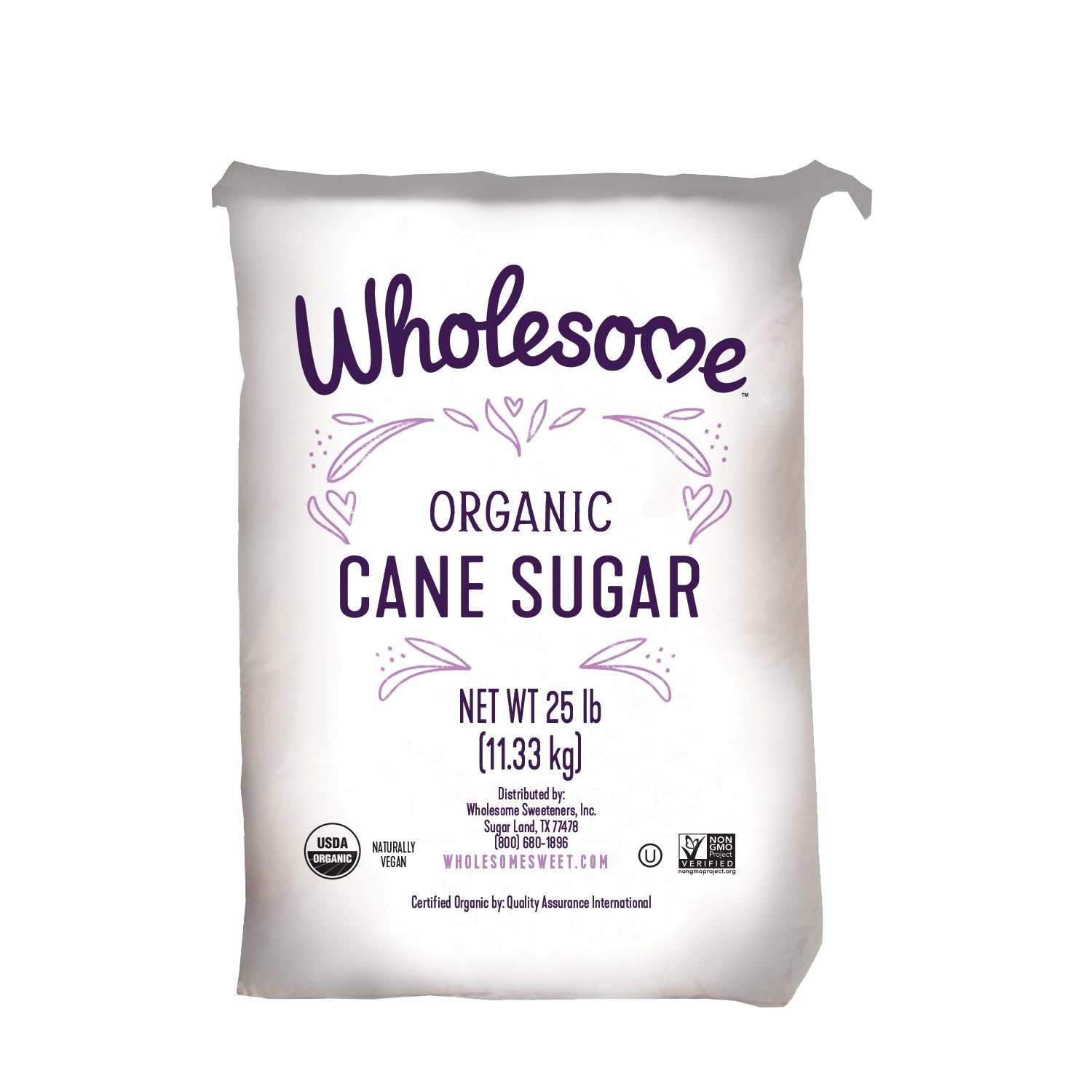A Thorough Summary of the Health and Economic Effects of Walking Stick Sugar Handling on Neighborhood Communities
Walking stick sugar handling plays a critical function in forming the financial landscape of regional neighborhoods, supplying work opportunities and promoting supplementary markets. Nonetheless, the wellness ramifications connected with high sugar intake can not be overlooked, as they add to rising rates of weight problems and diabetes. This nuanced vibrant welcomes a critical evaluation of how neighborhoods can enhance economic gains while attending to the pushing wellness challenges they encounter. The expedition of instructional initiatives and lasting techniques might just hold the trick to resolving these clashing passions. What strategies might communities apply to attain this balance?
Economic Advantages of Walking Stick Sugar Handling
Walking stick sugar handling uses substantial economic advantages that expand beyond the immediate farming industry. The cultivation and handling of sugarcane create countless task chances, from farming to production and circulation. This work generation not only sustains local economies but additionally promotes community growth by supplying stable income sources for households.
Additionally, the sugar industry promotes secondary companies, consisting of transportation, tools supply, and packaging services (Cane Sugar Processing). As these industries grow, they add to an extra durable financial structure, enhancing total neighborhood resilience. The export potential of processed cane sugar additionally intensifies financial advantages, positioning areas as affordable gamers in global markets
Investment in contemporary handling centers can lead to boosted productivity and performance, thereby decreasing waste and maximizing source usage. This shift not only benefits the regional economic situation but likewise sustains sustainability initiatives by decreasing environmental impacts.
Moreover, the earnings generated from walking stick sugar handling can be reinvested in neighborhood framework, education, and healthcare, advertising all natural neighborhood development. In general, the financial advantages of walking cane sugar handling are complex, providing a structure for sustaining prosperity in agricultural areas.
Wellness Threats Linked With Sugar Intake
Extreme sugar usage presents substantial wellness dangers that require major attention. High consumption of sugarcoated, specifically from processed beverages and foods, has been linked to numerous wellness complications. Among one of the most pressing concerns is obesity, as sweet diet plans contribute to a raised calorie intake without giving crucial nutrients. This unwanted can result in metabolic disorders, consisting of kind 2 diabetes mellitus, which has become increasingly widespread in both grownups and kids - Cane Sugar Processing.
Furthermore, high sugar consumption is linked with heart disease. Raised blood sugar degrees can bring about insulin resistance, a precursor to numerous heart-related concerns. Furthermore, sugar can have destructive effects on dental wellness, resulting in tooth cavities and gum illness, as microorganisms in the mouth thrive on sugar, creating acids that deteriorate tooth enamel.
Moreover, emerging study recommends a prospective link between high sugar intake and mental wellness disorders, such as anxiety and anxiousness. As communities grapple with these health and wellness threats, it comes to be vital to advertise awareness and encourage healthier nutritional selections. Addressing sugar consumption is important not just for specific wellness but likewise for the general wellness of neighborhood communities, emphasizing the requirement for thorough public wellness strategies.
Environmental Effects of Sugar Production
Often overlooked in discussions concerning sugar's implications is the considerable ecological effect of sugar manufacturing. The farming of sugarcane frequently requires extensive land usage, bring about logging, loss of biodiversity, and disturbance of neighborhood ecological communities. The conversion of woodlands and wetlands into sugar plantations can cause environment damage, threatening numerous varieties and browse around here modifying environmental balance.
Moreover, sugar production is resource-intensive, consuming significant quantities of water for watering. This can result in exhaustion of local water sources, detrimentally impacting both agricultural techniques and neighborhood access to tidy water. Furthermore, making use of chemical plant foods and chemicals in sugarcane farming can add to dirt destruction and water air pollution, as drainage from these chemicals goes into close-by rivers and lakes, affecting water life and human health and wellness.
The ecological footprint encompasses the handling phase, where power consumption and waste generation more intensify eco-friendly worries. Air pollution from melting sugarcane fields, along with greenhouse gas exhausts, contribute to environment change. Therefore, the environmental effects of sugar production warrant significant consideration, prompting stakeholders to embrace more sustainable techniques to reduce these negative effects on regional environments and communities.
Task Production and Community Advancement
The ecological challenges positioned by sugar manufacturing are typically counteracted by its potential for financial advantages, particularly in work production and community development. The walking cane sugar sector serves as a substantial source of employment in several backwoods, offering tasks throughout numerous ability levels, from agricultural labor to processing and circulation duties. This work not only supports specific family members however additionally contributes to the total economic vigor of local areas.
Furthermore, the facility of sugar processing facilities boosts ancillary services, such as transportation services, tools supply, and maintenance companies. As these organizations thrive, they produce additional jobs and reinforce regional economic climates. The revenue created from the sugar sector additionally brings about raised tax obligation profits, which can be reinvested right into neighborhood services such as education, medical care, and framework growth.
Additionally, the sugar industry usually takes part in community growth initiatives, such as sustaining local colleges and health and wellness programs, thereby improving the high quality of life for locals. By cultivating strong area ties and advertising economic growth, the walking cane sugar processing sector plays a crucial role in uplifting regional populaces, making it a crucial element of lasting advancement approaches in sugar-producing regions.
Balancing Health And Wellness and Economic Growth
In navigating the complexities of cane sugar processing, a critical difficulty hinges on stabilizing health and wellness considerations with financial growth. The sugar market dramatically contributes to regional economies by producing work, he has a good point boosting related industries, and boosting tax obligation revenues. However, the health and wellness effects related to too much sugar consumption can lead to chronic conditions such as weight problems, diabetes, and cardiovascular concerns, which can burden public health and wellness systems and lessen labor force performance.

Furthermore, governing structures can play a pivotal role in assisting sector techniques towards more health-conscious and lasting techniques. By cultivating cooperation between government bodies, health organizations, and the sugar market, neighborhoods weblink can navigate the dichotomy of health and wellness and financial development, making certain that the advantages of walking cane sugar handling are equitably shared while focusing on public wellness.
Verdict
In conclusion, the processing of walking cane sugar provides both considerable economic advantages and notable health dangers for regional communities. While it fosters job creation and boosts local growth, the affiliated wellness concerns, especially concerning weight problems and diabetic issues, require a cautious balancing act. By advertising accountable usage and investing in community education and learning and lasting techniques, it is possible to make the most of economic advantages while decreasing damaging health and wellness effects, thereby making certain a much healthier future for regional populations.
Furthermore, sugar can have harmful effects on dental wellness, resulting in dental caries and gum tissue condition, as germs in the mouth flourish on sugar, producing acids that wear down tooth enamel.
Attending to sugar intake is crucial not just for specific wellness but additionally for the general health of regional communities, highlighting the need for thorough public health strategies.
Regularly neglected in conversations about sugar's effects is the significant ecological impact of sugar manufacturing. The wellness implications linked with extreme sugar consumption can lead to persistent illness such as weight problems, diabetes, and cardio problems, which can worry public health and wellness systems and lessen workforce efficiency.
